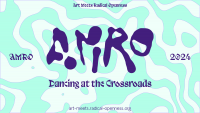By Dr Rosen Petkov
President of the Student Computer Art Society (SCAS)
Invisible Serdica is a mobile app that reveals objects of historical significance in the ancient city of Serdica, situated at the present location of the Bulgarian capital (Sofia). This tool enables you to get a realistic insight into some of the places, now hidden under the ground, emphasises on some of the unknown cultural aspects related to them by granting access to the especially edited multimedia tales and legends, curious stories and bibliographic data to various sources found in the NALIS Union Catalogue (NALIS UC). In this way, the historical significance of the object is revealed together with its relation to emblematic figures and events.
Every object is represented by several sections – History, Legends, Multimedia, From the Books and NALIS catalogue – and by pictures, video, music and 3D models (under Multimedia). The good news is that the app is freely downloadable (from both the App Store and Google Play) and automatically installable. Once you start it, it locates where you are and shows the objects around (either hidden or visible only in part). Besides, you may choose between the English or Bulgarian interface. What makes it different from similar applications is that it directs the user – through library catalogues and namely the NALIS UC – to written sources (books, primary sources, photographs, graphic materials etc.) and shows some of the well-known architectural monuments from a different perspective – the interesting stories behind them.
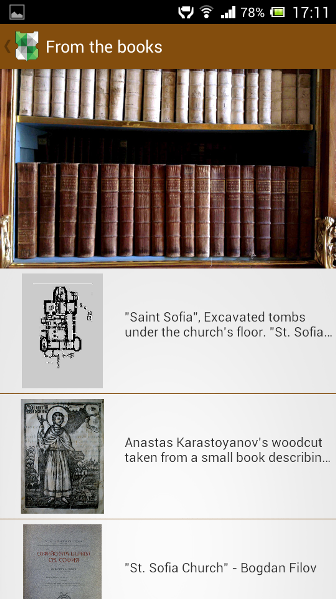 Even though still in progress (just 8 objects are in) the application is already functioning. So far available are: 1. The Amphitheatre, 2. St. Sofia Basilica, 3. St. George Rotunda and its neighbourhood, 4. The Main Street (Largo), 5. The tombs under the yellow pavement, 6. The tomb under Gurko Street, 7. St. Petka Samardzhijska (of the Saddlers) Church and 8. The Western Gate.
Even though still in progress (just 8 objects are in) the application is already functioning. So far available are: 1. The Amphitheatre, 2. St. Sofia Basilica, 3. St. George Rotunda and its neighbourhood, 4. The Main Street (Largo), 5. The tombs under the yellow pavement, 6. The tomb under Gurko Street, 7. St. Petka Samardzhijska (of the Saddlers) Church and 8. The Western Gate.
For more information you may check both at the project’s website and its facebook profile. The initiative is sponsored by the America for Bulgaria Foundation and the development itself has been undertaken by the Student Computer Art Society in partnership with the NALIS Foundation. The Museum of Sofia has also contributed with information to some of the digital objects created.
Download Rosen Petkov’s full article – PDF
Visit NALIS’ website and its Catalogue!


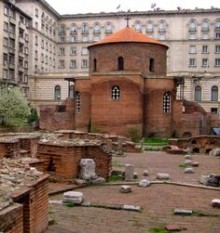
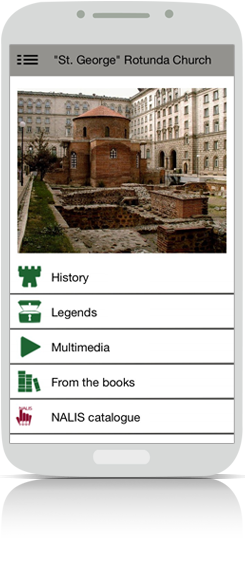

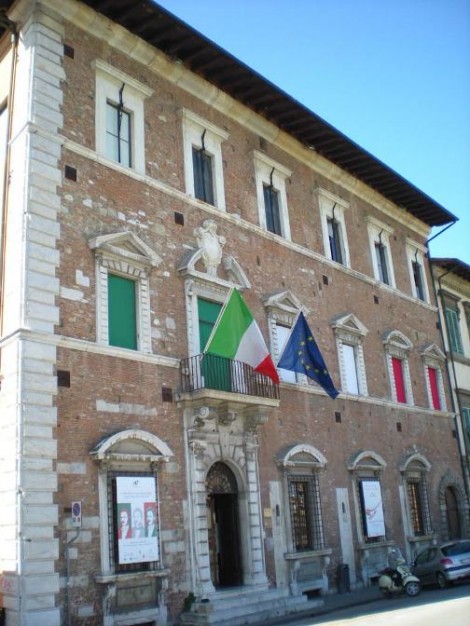 The project’s main objective is therefore reducing the distance between people and culture, recalibrating the relationship between heritage professionals and heritage users: such recalibration process will maximise cultural creativity and ensure that the whole European community can benefit from the social and business potential of Cultural Heritage.
The project’s main objective is therefore reducing the distance between people and culture, recalibrating the relationship between heritage professionals and heritage users: such recalibration process will maximise cultural creativity and ensure that the whole European community can benefit from the social and business potential of Cultural Heritage.
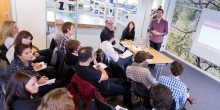
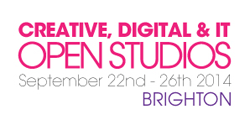 For the last (full) week of September, 22nd – 26th, at Brighton Digital Festival, Wired Sussex will be coordinating Creative, Digital & IT Open Studios, an event which provides an opportunity for local businesses to lift the curtain on what goes on behind the scenes in the sector.
For the last (full) week of September, 22nd – 26th, at Brighton Digital Festival, Wired Sussex will be coordinating Creative, Digital & IT Open Studios, an event which provides an opportunity for local businesses to lift the curtain on what goes on behind the scenes in the sector.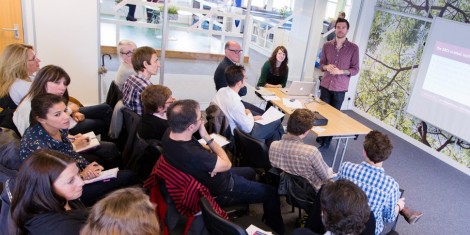
 In 2013, the Brighton Digital Festival drew an audience of over 41,000 people to 175 events held throughout September. The organisers are set to deliver another great festival programme for 2014 and are keen to continue growing the BDF community.
In 2013, the Brighton Digital Festival drew an audience of over 41,000 people to 175 events held throughout September. The organisers are set to deliver another great festival programme for 2014 and are keen to continue growing the BDF community.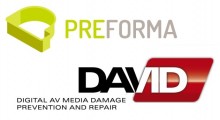
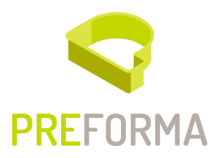 PREFORMA (
PREFORMA (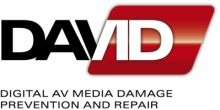 DAVID (
DAVID (

 them to the rest of the class.
them to the rest of the class.
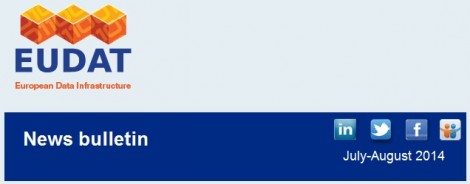
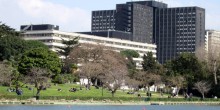
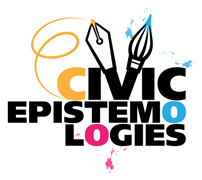 The CIVIC EPISTEMOLOGIES project is about the participation of citizens in research on cultural heritage and humanities. The project will last 16 months and it has received funding from the European Union’s Seventh Framework Programme for research, technological development and demonstration.
The CIVIC EPISTEMOLOGIES project is about the participation of citizens in research on cultural heritage and humanities. The project will last 16 months and it has received funding from the European Union’s Seventh Framework Programme for research, technological development and demonstration.
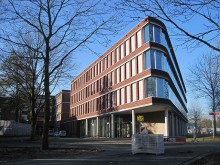
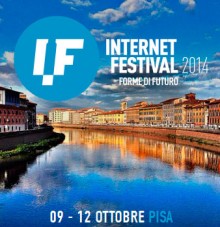
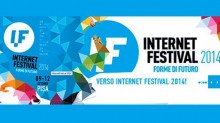 From 9 to 12 October in Tuscany, Pisa, it is being held the Third Edition of Internet Festival, one of the most important European events dedicated to the digital world, promoted by Tuscany Region, Municipality of Pisa, Registro.it, the IT and Telematics Institute of CNR, University of Pisa, Sant’Anna High School, Normale High School, together with Chamber of Commerce, Pisa’s District and Science Festival Association.
From 9 to 12 October in Tuscany, Pisa, it is being held the Third Edition of Internet Festival, one of the most important European events dedicated to the digital world, promoted by Tuscany Region, Municipality of Pisa, Registro.it, the IT and Telematics Institute of CNR, University of Pisa, Sant’Anna High School, Normale High School, together with Chamber of Commerce, Pisa’s District and Science Festival Association.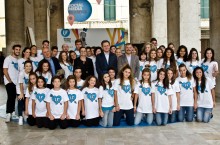
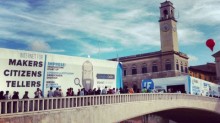
 The Festival will also analyse the Internet Economies, common thread of 2014’s edition, into eight sections: Take the money, Make it good, Go Green, Design to innovate, Culture is smarter, Cooperation wanted, Break the rules and Play the Game. These section are intended to investigate themes related to culture, participation, opportunities for young people, green start-ups, design, game business and the connection between hackers and privacy.
The Festival will also analyse the Internet Economies, common thread of 2014’s edition, into eight sections: Take the money, Make it good, Go Green, Design to innovate, Culture is smarter, Cooperation wanted, Break the rules and Play the Game. These section are intended to investigate themes related to culture, participation, opportunities for young people, green start-ups, design, game business and the connection between hackers and privacy.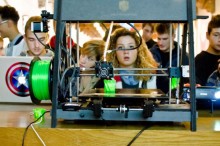
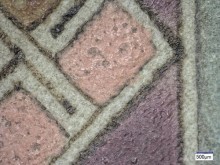
 If you have interesting news and events to point out in the field of digital cultural heritage, we are waiting for your contribution.
If you have interesting news and events to point out in the field of digital cultural heritage, we are waiting for your contribution.














